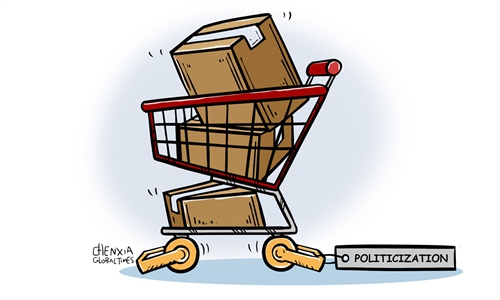The number of over-indebted households in Germany fell by 4.4 percent year-on-year to a record low of 5.9 million in 2022, according to a study published by the Creditreform agency on Tuesday.
Since the start of the pandemic, cases of over-indebtedness have dropped at a "dramatic pace," according to Creditreform. German consumers spent less money and were at the same time protected by the government's support programs.
However, the ongoing energy crisis and the record-high inflation have slowed down the decline. "The real burdens will be persistently high inflation and, in particular, rising energy costs, which have by no means fully reached consumers," Creditreform expert Patrik-Ludwig Hantzsch said.
Driven by soaring energy prices, inflation in Germany rose to 10.4 percent in October, according to the Federal Statistical Office. Despite the reduction of the value-added tax from 19 percent to 7 percent, the price of natural gas has more than doubled.
According to the ifo Institute for Economic Research, the current spike in energy prices will cost Germany nearly 110 billion euros ($114.4 billion) in real income by 2023, with the funds flowing to sellers abroad. This is the biggest real income loss since the second oil crisis in the late 1970s.
To cushion the inflationary pressure on consumers and businesses, the German government has adopted relief packages worth 95 billion euros. An even bigger "protective umbrella" of up to 200 billion euros has also been introduced to cap electricity and gas prices.
Since the start of the pandemic, cases of over-indebtedness have dropped at a "dramatic pace," according to Creditreform. German consumers spent less money and were at the same time protected by the government's support programs.
However, the ongoing energy crisis and the record-high inflation have slowed down the decline. "The real burdens will be persistently high inflation and, in particular, rising energy costs, which have by no means fully reached consumers," Creditreform expert Patrik-Ludwig Hantzsch said.
Driven by soaring energy prices, inflation in Germany rose to 10.4 percent in October, according to the Federal Statistical Office. Despite the reduction of the value-added tax from 19 percent to 7 percent, the price of natural gas has more than doubled.
According to the ifo Institute for Economic Research, the current spike in energy prices will cost Germany nearly 110 billion euros ($114.4 billion) in real income by 2023, with the funds flowing to sellers abroad. This is the biggest real income loss since the second oil crisis in the late 1970s.
To cushion the inflationary pressure on consumers and businesses, the German government has adopted relief packages worth 95 billion euros. An even bigger "protective umbrella" of up to 200 billion euros has also been introduced to cap electricity and gas prices.



